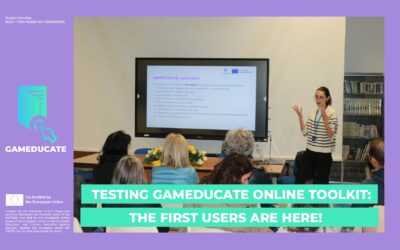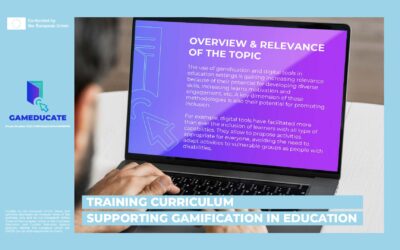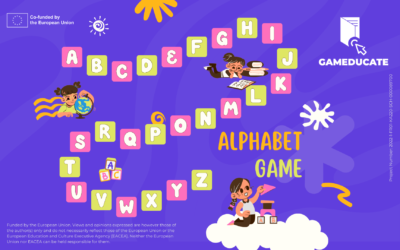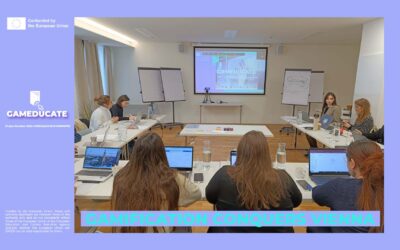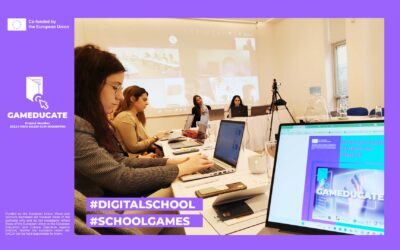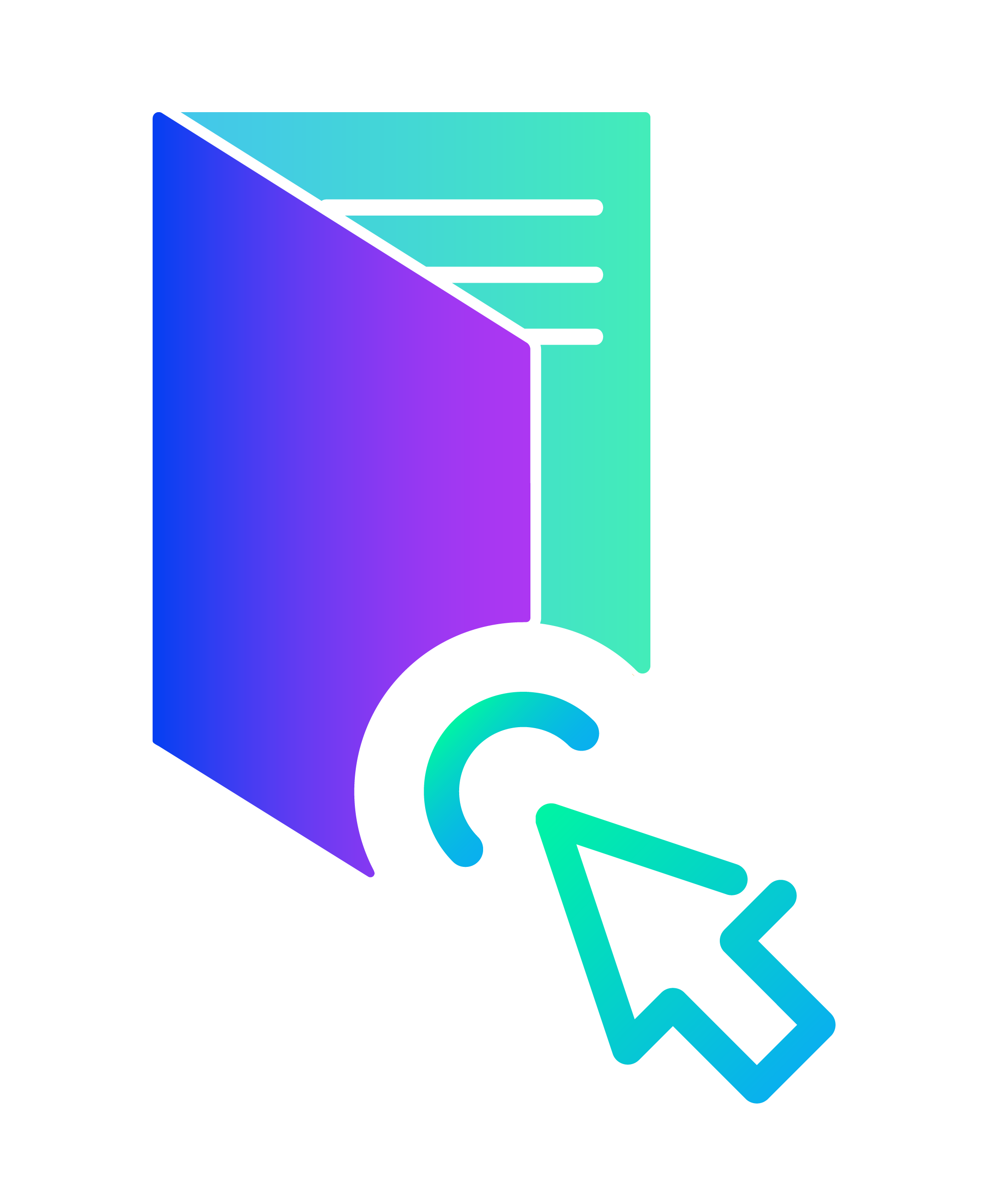
GAMEDUCATEProject
Gamification in school education


About the project
GAMEDUCATE directly addresses the development of key competences of teachers, educators and school leaders in school education, by focusing on the use of innovative learning approaches such as gamification, as well as existing and newly developed digital teaching tools. It aims to enhance teachers’ initial education together with their continuous professional development by providing them with innovative teaching tools, methodologies, digital technologies and pedagogies in the form of a curriculum and offering them relevant training in the form of workshops on how to integrate such methods and tools into formal teaching. In this way, GAMEDUCATE also addresses the Digital Transformation priority by building capacity and critical understanding on how to exploit the opportunities offered by digital technologies for teaching and learning.
Objectives
To gain insights on the current needs and skill gaps regarding innovative teaching methods and digital technology in education in the partner countries by conducting an in-depth analysis of their national curriculums.
To enhance the professional development of schoolteachers and other teaching professionals by providing them with innovative teaching methodologies and pedagogies in the form of a curriculum.
To create an integrated curriculum framework, consisting in 9 modules and based on local curricula, guiding how to easily and successfully integrate innovative teaching approaches and digital tools in formal school teaching.
To provide a comprehensive digital toolkit which will include an online platform, digital technology tools and other multimedia means that teachers can incorporate into their teaching.
Results
Training Curriculum
The key result of GAMEDUCATE is the design and development of an innovative learning and capacity curriculum that will address the needs of school teachers, school leaders and other teaching professionals in the partner countries that the project will be implemented. The curriculum designed is expected to consist of 9 modules, based on the analysis of the national curriculum of the partner countries. The modules will focus on integrating gamification and other innovative pedagogies as well as digital technologies into the national curriculum of these country. Modules will be delivered online so schoolteachers can complete them on their own. The curriculum is designed to be flexible and adaptable to a wide range of contexts.
Training Toolkit
The GAMEDUCATE Training Toolkit is the project’s main digital tool. The key purpose of this free-access training toolkit is to function as a virtual learning environment where users will be able to achieve the learning outcomes. It will provide both target groups and stakeholders with a common online space, tools and resources to obtain knowledge and practical experience related to the issues regarding gamification and other innovative pedagogies. This toolkit will include resources about digital technology tools that can be used in education, relevant examples of innovative pedagogies in school education and other relevant materials.
Curriculum implementation activities
Implementation activities will take place in the form of 14 workshops, 2 in each partner country (one online and one face-to-face), with 20 participants each. The objective is to present a selection of the module materials to schoolteachers and other teaching professionals. This way, workshops will bring participants from target groups in direct contact with the project’s curriculum and create upskilling opportunities for them. The expected result will be the achievement of the learning outcomes of the project for the participants that were engaged as well as developing an Implementation Guidelines Report.
Activities
Five work packages to realise an innovative training curriculum for school professional based on gamification approach and methods, a digital toolkit, and a training course that aims to provide the correct preparation to teachers and educators. This process goes through steps of investigation, workshops, participatory feedback session, and adaptation with the purpose of designing the following results.
News
The Online Workshop to learn about gamification in education
The 10th of June, our Italian partner, CEIPES, organized an insightful online workshop under the Erasmus+ project, GAMEDUCATE, which aims to support teachers’ continuous training and formation by focusing on the benefits of new technologies and new teaching methods. ...
The first Italian workshop to learn about gamification and digital tools
Last 23rd April, our Italian partner CEIPES visited the ICS Maredolce (Palermo) to give life to the first workshop activity of GAMEDUCATE. The Italian experience marked the beginning of a series of workshops that will be held in 7 European countries with teachers from...
Testing the online toolkit in Italy: the first users are here!
Last 18th April, Our Italian partner CEIPES visited the Maria Montessori Institute in Alcamo, Sicily, for testing with teachers and education professionals one of the main results of our “GAMEDUCATE - Gamification in School Education” project: the online toolkit. This...
Training Curriculum: Supporting Gamification in Education
The GAMEDUCATE project (Erasmus+ project KA220) has accomplished one of its very expected results: its training curriculum is ready! This Training Package has been developed jointly by the whole consortium formed by: CBE, DRPDNM, Akata Makata, ÖJAB, GEINNOVA,...
Selecting Wisely: The Significance of Age-Appropriate Games
Age-appropriate games and gamification in kindergarten play a crucial role in fostering a child's cognitive, social, and emotional development. When selecting games and activities for this age group, it's imperative to consider their unique developmental stages and...
Gamification conquers Vienna
The vibrant city of Vienna, Austria, recently hosted the Second Transnational Partner Meeting of GAMEDUCATE, an Erasmus+ project focused on revolutionizing education through gamification and digital tools in schools. The meeting, held the 29th of November 2023,...
In Cyprus to work on the first steps
On the 7th of March 2023, the consortium – CEIPES, CBE, CSI, Akata Makata, ÖJAB, GEINNOVA, University of Macedonia, Osengo, and DRPDNM – met for the first transnational meeting of the ‘GAMEDUCATE - Gamification in School Education’ (2022-1-FR01-KA220-SCH-000089700)...
How school can be innovative
On the 1st of December, the consortium – CEIPES, CBE, CSI, Akata Makata, ÖJAB, GEINNOVA, University of Macedonia, Osengo, and DRPDNM – held the kick-off meeting of the ‘GAMEDUCATE – Gamification in School Education’ project online (2022-1-FR01-KA220-SCH-000089700). ...
Partners
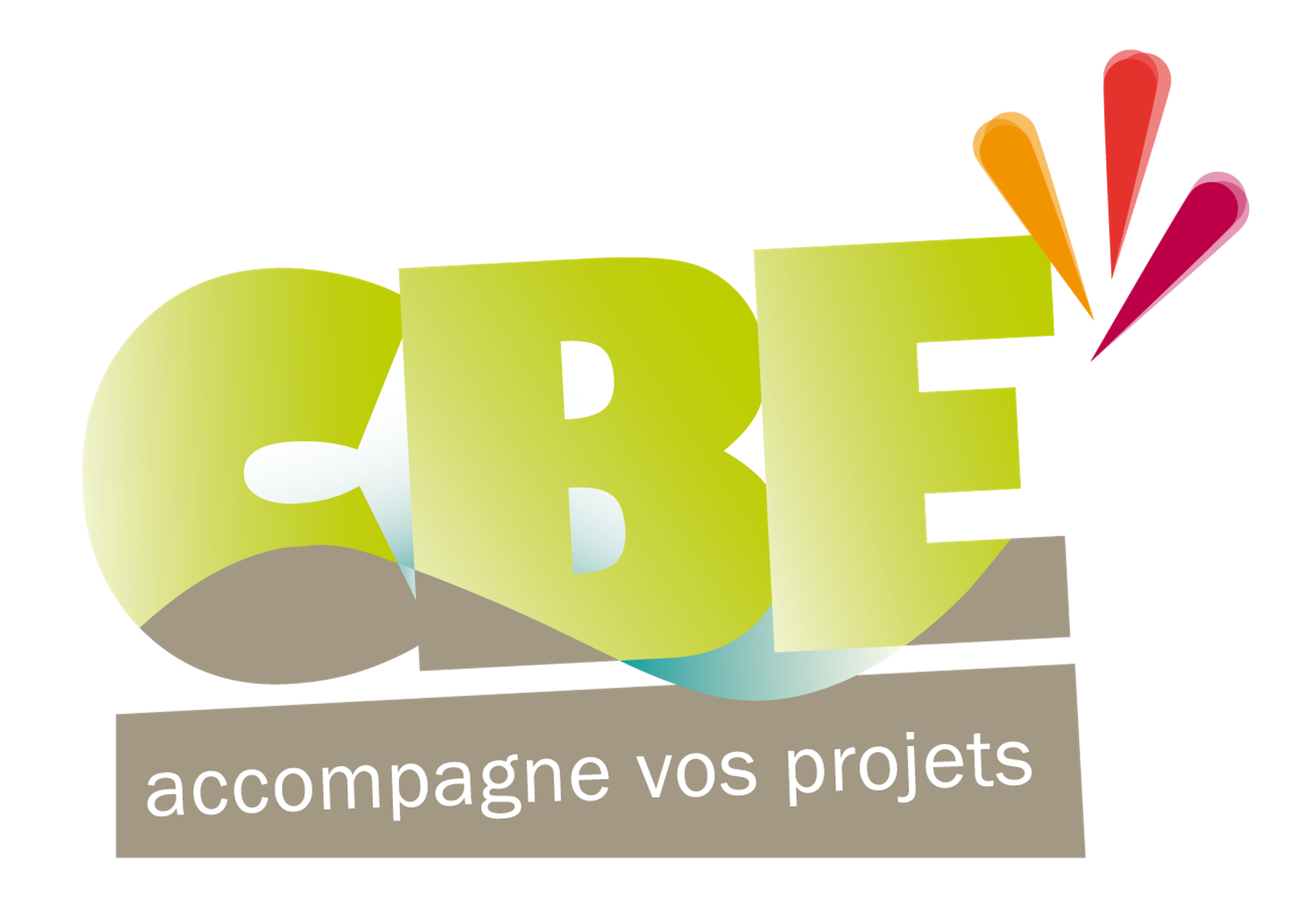
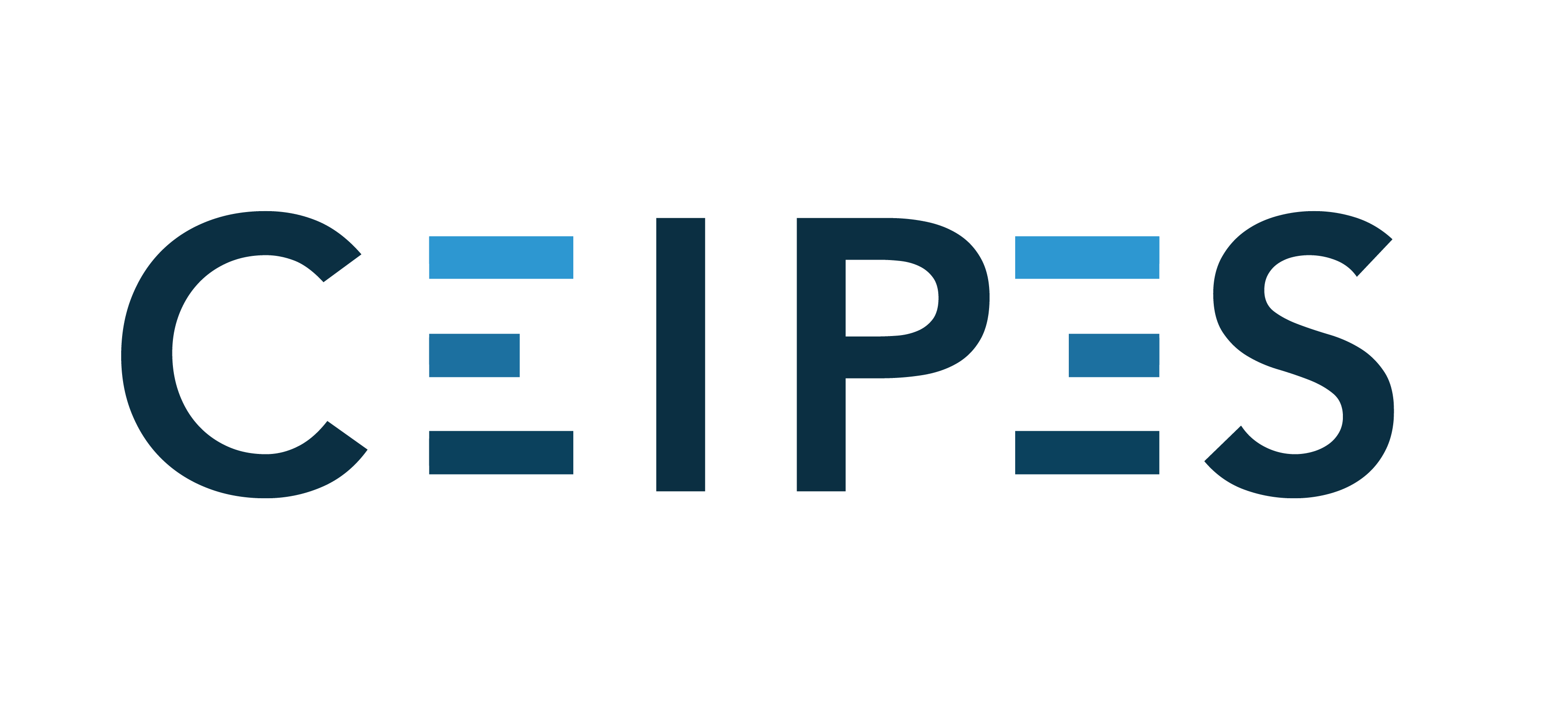



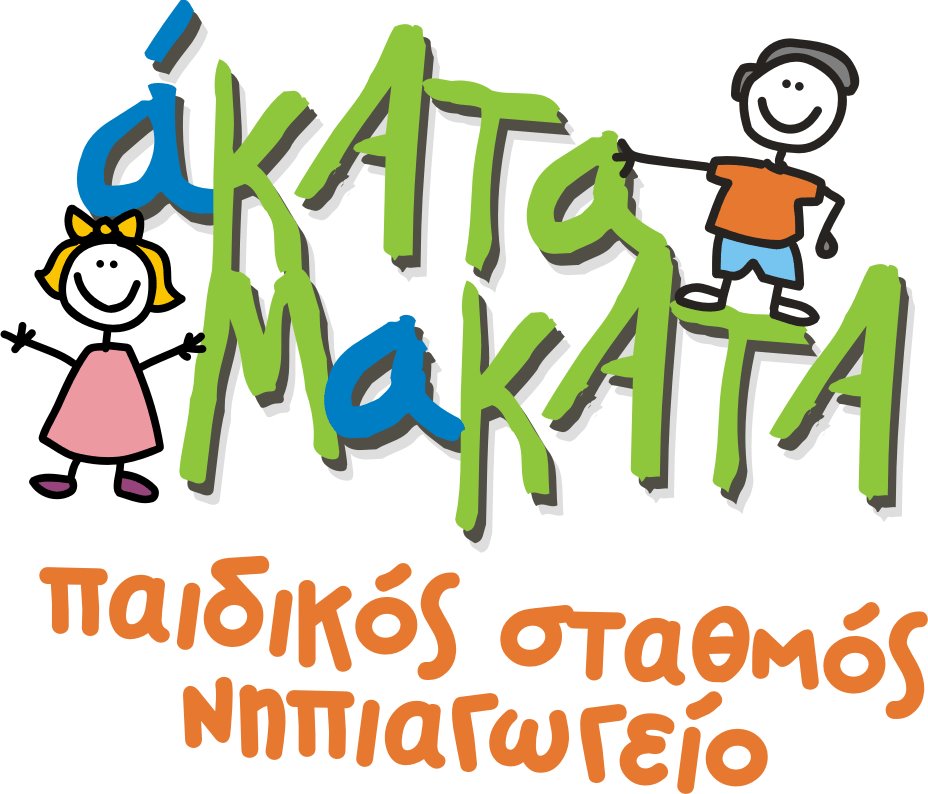
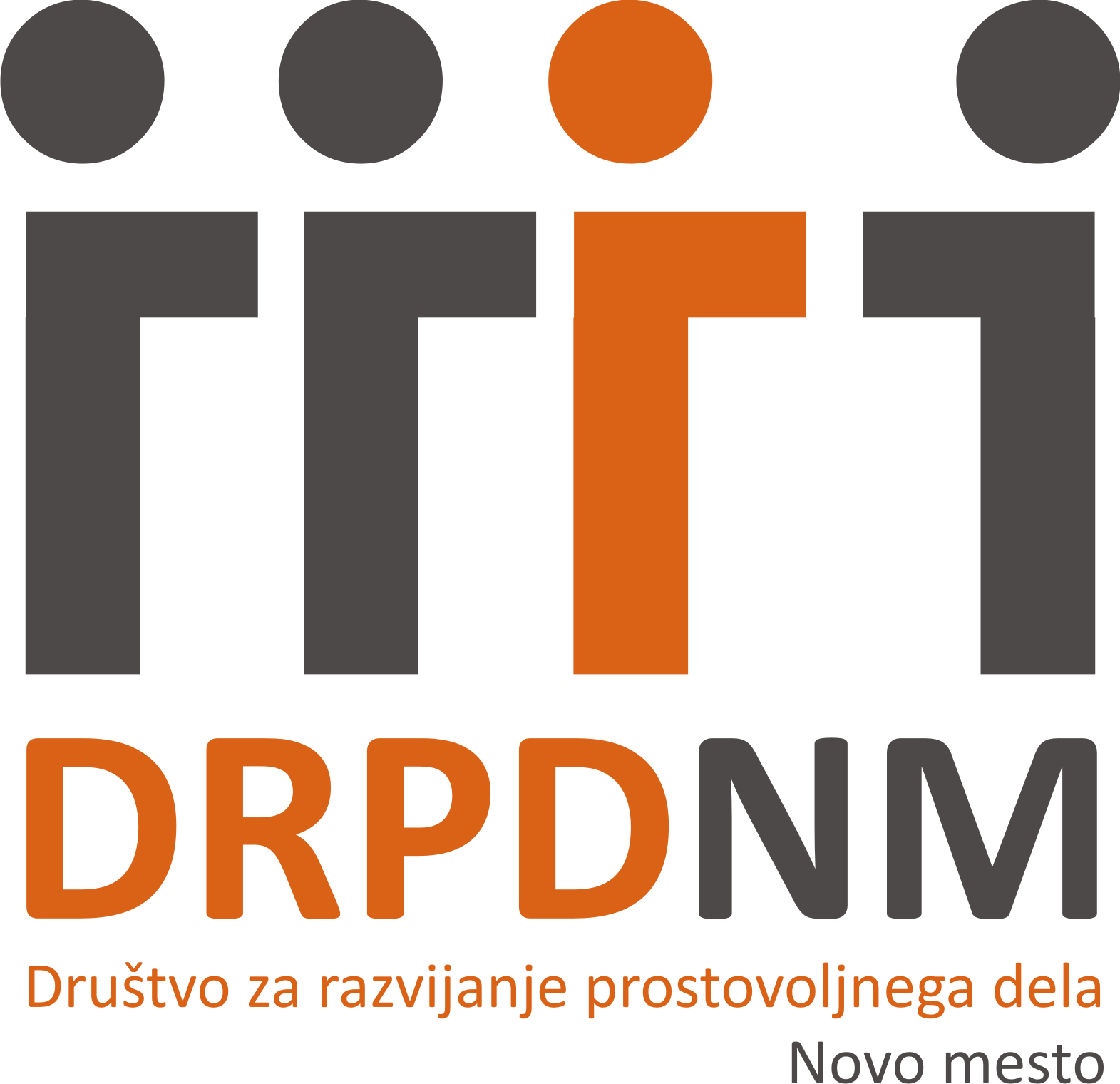
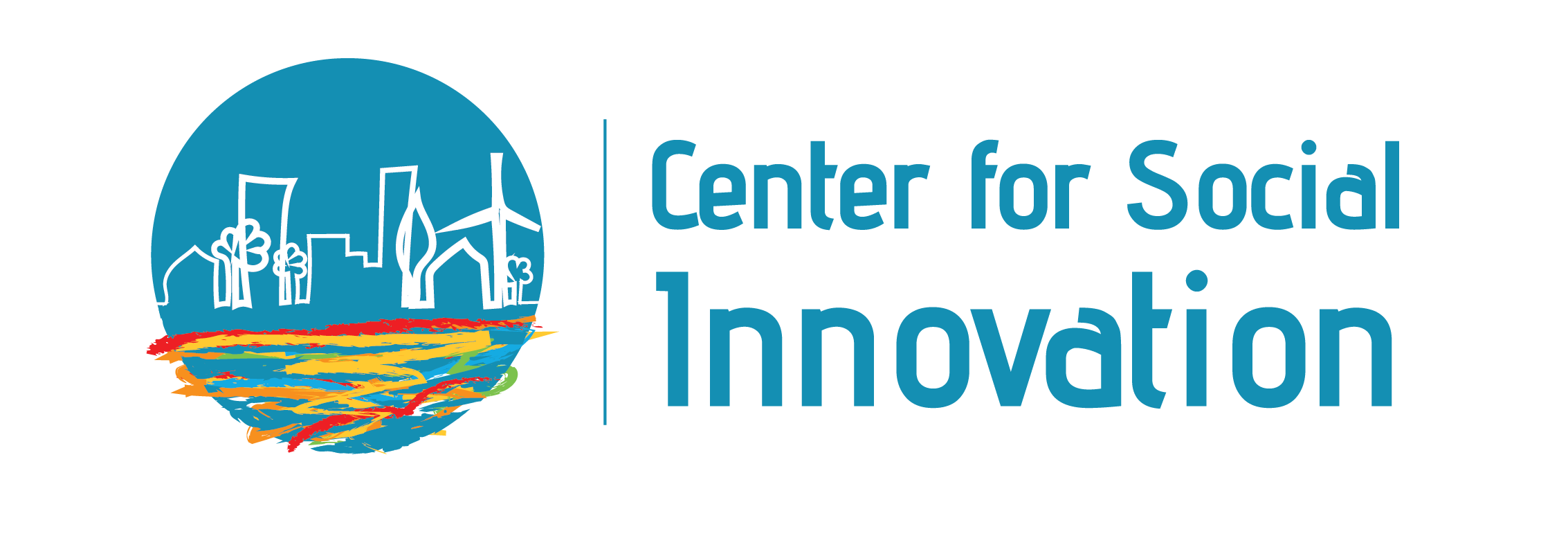
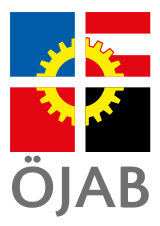
CBE Sud Luberon Val de Durance
COORDINATOR
CBE Sud Luberon is a non-profit organization established in 1982 and dedicated to Extended Local Social Dialogue. Its objective is to promote employment, highlighting and supporting local initiatives. Private or public, individual or collective, it seeks to create synergies linked to economic activities, land planning and human potentials on which the South Luberon identity is based. Representatives of the devolved State services and Local Authorities are systematically associated to the CBE projects. The Board of Directors, composed of 21 members, is divided in 5 Colleges: elected representatives, company managers, trade unions, organizations of Social Economy, associated partners (consultative voice). The creation and organization of a CBE respond to a common will of local socio-economic actors. This expression of local democracy assures the efficiency and pertinence of the actions conducted.
CEIPES
CENTRO INTERNAZIONALE PER LA PROMOZIONE DELL'EDUCAZIONE E LO SVILUPPO (CEIPES): is a non-profit organisation founded in 2007 and based in Palermo, Italy. It leads a Network of more than 8 European and extra European associations focused on Education, Training and Social Development. CEIPES has expertise on Education, Transfer of innovation and Project management in different European programmes tackling the Education and the capacity building of different target groups, from young people to adults, from women to unemployed, migrants and disadvantaged groups. It also promotes lifelong learning, vocational training and entrepreneurship with the aim of enhancing opportunities for youth and adults to improve and acquire competences and therefore boost their employability and inclusion. CEIPES has several links with public and private local and international stakeholders that can contribute to the achievement of project results in terms of dissemination, exploitation and sustainability of them. CEIPES can count on experienced staff composed of professionals with different competences and fields such as psychology, communication, training, international cooperation, social and cultural mediation, social assistance, ICT, digital manufacturing and law.
UNIVERSITY OF MACEDONIA
The University of Macedonia (UOM) was established in its current form in 1990 and is located in Thessaloniki, in Northern Greece. It is a State University under the responsibility of the Ministry of Education. It is a dynamic institution with four faculties consisting of eight undergraduate academic departments covering thirty graduate programs in disciplines with a high demand in the labour market. About 16.000 undergraduate and 2.000 graduate students attend courses in the University of Macedonia. The University of Macedonia has implemented projects under most of the former Erasmus programme, former framework (FP7) and Industrial Relations and Social Dialogue programme as well as many European Territorial Cooperation Programme. Currently UoM participates as a coordinator or a beneficiary in projects under the Erasmus+ programme, as well as the Horizon 2020 programme. Τhe scientific team of the project belongs to the department of Business Administration which is conducting research and educating students on issues of decision-making and Business Administration analysis.
Gestión Estratégica e Innovación SL
Gestión Estratégica e Innovación (GEINNOVA) is a training center specialized in the areas of entrepreneurship and leadership, e-learning and e-learning platforms that was created with the aim of increasing the quality of education and entrepreneurship of the promoters, with innovative approaches in the educational and social fields and gender perspective. In addition, it has an expert team in European project management, which brings its experience in the development of courses and training activities. Through the development of a digital platform, they help companies, organizations and public administrations, with expert advice and training. They also promote and support the sustainable development of local communities and the empowerment of people through education and training in the fields of leadership and entrepreneurship.
OSENGO
OSENGO is a non-profit VET organization, specialist in lifelong learning and vocational education, member of the French Vocational Education Federation It has 32 permanent training centres located in four regions of France. For over thirty years, OSENGO has been supporting various target groups towards lifelong vocational education or career change: employees, entrepreneurs, young people, unemployed, disabled workers, seniors, etc. OSENGO provides qualifying and certifying training in hospitality, catering, social, tertiary, commercial and digital sectors. Beyond these certificated courses, the OSENGO Group offers also tailor-made services. OSENGO created a special department for Europe related topics in 1994 and has since led numerous projects of mobility and pedagogical engineering.
MONADA FRONTIDAS PROSCHOLIKIS AGOGIS KAI DIAPAIDAGOGISIS - NIPIAGOGEIO MARIA AX. VAIOPOULOU - DESPOINA AX. TSIRAKOPOULOU O.E.
Akata Makata nursery and pre-school, Greece: Akata Makata is situated in the heart of Larissa,Greece.Having as main principle the children and their needs, in Akata Makata all children are unique. The education Akata Makata provides respects children's personality, linguistic background, social & cultural identity. The educational program, school offers, meets the individual needs of each student within the school community. This school holds rich experience in the use of cross-curricula activities including hands- on games, stories, drama, dance, sports, ecological and artistic activities in the teaching process provided by our qualified preschool teachers. Akata Makata aims at the comprehensive development of children and their subsequent attitude towards learning in personal empowerment and the formation of balanced and happy personalities. The school has been teaching children in their first steps with STEAM, English Language,Nature etc. Following the curriculum of the kindergarten and specifically its learning areas such as ‘natural sciences’ and ‘environment and education for sustainable development’ we help children to perceive growth as a gradual process that takes time (eg we measured how many days it takes for the seed to germinate) but also to develop positive attitudes and values in matters concerning the planet's natural capital (e.g. natural resources, biodiversity, interdependence), with behaviors and actions that preserve natural capital and natural balance.
DRUSTVO ZA RAZVIJANJE PROSTOVOLJNEGA DELA NOVO MESTO
Drustvo za razvijanje prostovoljnega dela Novo mesto is a non-governmental organisation working in public interest in the field of youth, culture and social inclusion. As we are working on such programmes, taking actions and being overall active in the field of our goal, we are steering to contribute to more inclusive and open society for all, by integrating socially excluded groups, by promoting active citizenship and participation (especially among youth), by encouraging the development of NGO sector and civil dialogue. The organisation has a 27 year long tradition, and currently employs around 20 social workers, project coordinators, and other staff from various professional backgrounds. Every year we have around 100 volunteers engaged in all levels of work and considering our activities almost 2000 local people are involved in the activities. We are addressing over 1500 organisations and institutions around the world and running over 30 projects per year. In addition, we run day care centres for children, where children and youth with fewer opportunities are invited, which also adds to our contribution to the local society. Besides that, regional NGO hubs strengthen NGOs’ capacity for active contribution to local development, to improve the stakeholders’ understanding of NGO contribution.
CSI CENTER FOR SOCIAL INNOVATION LTD
Center for Social Innovation (CSI) is a Research and Development organization, which focuses on fostering social innovation that can bring about a positive change to local, national, regional, and global entities. These entities include but are not limited to governments, local administrative agencies, non-for-profit agencies, commercial entities, and educational institutions. The CSI team is composed of open-minded, fully equipped researchers, entrepreneurs, project managers, trainers, and Information Technology specialists. CSI encompasses the capability and capacity to identify social needs, design and implement adjusted initiatives, and provide for sustainable growth. The CSI team’s areas of expertise are in the fields of traditional education and e-learning, entrepreneurship, start-ups, innovation, creativity, negotiations, IP advisory services, social responsibility, business advisory solutions, data analytics, information technologies, project management, project evaluation services, product validation, training, and computer gaming. CSI draws know-how and skills from its wide global network, which includes academic institutions, IT companies, public services, international organizations, start-ups, and public services.
Österreichische Jungarbeiterbewegung, ÖJAB
As one of Austria's largest residential home operators, ÖJAB (Österreichische JungArbeiterBewegung - Austrian Young Workers' Movement) functions as a non-profit, party-politically and denominationally independent youth organization that provides residential homes for students and other young people and offers stationary and mobile care for older people. ÖJAB also pursues projects in the areas of education, integration, refugee aid and development cooperation. In addition, ÖJAB supports 1,600 young people and adults (mostly from socially disadvantaged backgrounds) annually in obtaining education and training that qualifies them for the labor market. ÖJAB participates in Europe-wide educational projects and asylum seekers and refugees are cared for in ÖJAB facilities and can participate in ÖJAB training programs. ÖJAB also engages in development cooperation projects in Burkina Faso.


